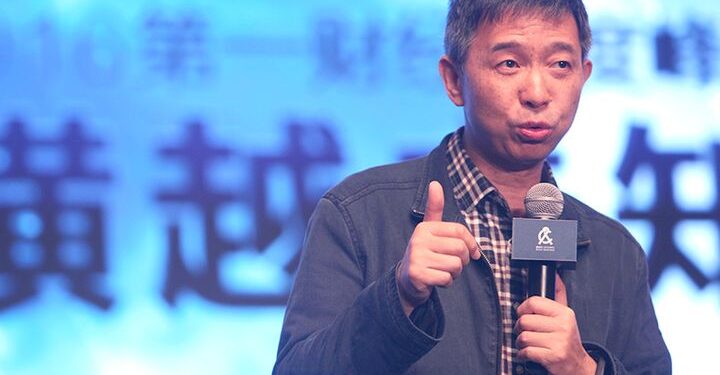Wang Jian, the visionary who built Alibaba Cloud in 2009, says true innovation doesn’t come from the most expensive talent but from finding the right people with the right mindset.
Right Vision Beats Big Paychecks in AI Innovation Race
“The only thing you need to do is to get the right person. Not really the expensive person because if it’s a new business, if it’s true innovation, that basically means talent.” Wang said in a recent interview.
Wang’s take comes as U.S. tech companies engage in an unprecedented bidding war for AI talent. Meta made headlines by offering packages worth up to $300 million to attract star researchers. OpenAI’s Sam Altman claimed Meta attempted to poach his best employees with $100 million signing bonuses. Just weeks ago, Google paid $2.4 billion to hire the CEO and top talent from AI startup Windsurf.
Wang dismisses this approach. “It’s a typical way of doing things,” he said of Big Tech’s hiring strategy. “What happened in Silicon Valley is not the winning formula.”
His perspective stems from deep experience. Before joining Alibaba in 2008, Wang built his reputation at Microsoft Research Asia. As a computer scientist with a doctorate in psychology, he pioneered Alibaba’s cloud computing division when the concept was still new to most businesses.
Fresh Eyes See New Possibilities in Tech
Wang believes major U.S. tech firms focus too much on protecting their existing business models rather than pursuing true innovation.
“American tech giants are very much focused on the existing success of the business,” he explained.
He sees this fixation on maintaining current success as a limitation that creates opportunity elsewhere. “We have a tremendous opportunity to look at technology nobody knows today.”
This insight might explain why Wang believes chasing established talent at any cost isn’t always smart. “Whenever everybody knows that these are talents,” he noted, “it’s better for you not to get it.”
Instead, Wang emphasizes the importance of vision and direction: “It’s really about the vision, you know, where you want to go.”
China’s AI Scene Shows Different Path Forward
Wang also shared thoughts on China’s AI development ecosystem, describing the competition as “very healthy” rather than cutthroat.
He observed a pattern where companies take turns leading: one surges ahead, then slows, allowing another to take the lead. Over time, the first catches up again. This creates a rhythm of progress.
“You can have the very fast iteration of the technology because of this competition,” Wang said.
China’s major tech companies have focused heavily on open-source AI models, making code and architecture publicly available for others to build upon. Companies like Tencent have deployed their Hunyuan model across massive platforms like WeChat, while also integrating other models like DeepSeek R1.
This approach has helped China close the gap with the U.S. in AI development. Nvidia CEO Jensen Huang recently acknowledged that China is doing “fantastic” in AI, with homegrown models emerging as serious competitors to U.S. systems.
Huang has noted that Chinese AI researchers rank among the world’s best, which explains why U.S. companies like OpenAI and Anthropic actively recruit them.
Innovation Mindset Trumps Deep Pockets
The fundamental difference in Wang’s approach centers on how to spark true innovation. While Silicon Valley throws unprecedented sums at established talent, Wang suggests finding the right minds with fresh perspectives might yield better results.
His comments highlight a philosophical divide in how to advance AI technology. Is progress best served by concentrating top talent at a few companies with massive resources? Or does innovation benefit more from diverse approaches and unconventional thinking?
As tech companies continue their talent arms race with increasing compensation packages, Wang’s contrarian view offers food for thought. Perhaps the next breakthrough won’t come from the most expensive hire but from someone with a unique vision and the freedom to pursue it.














